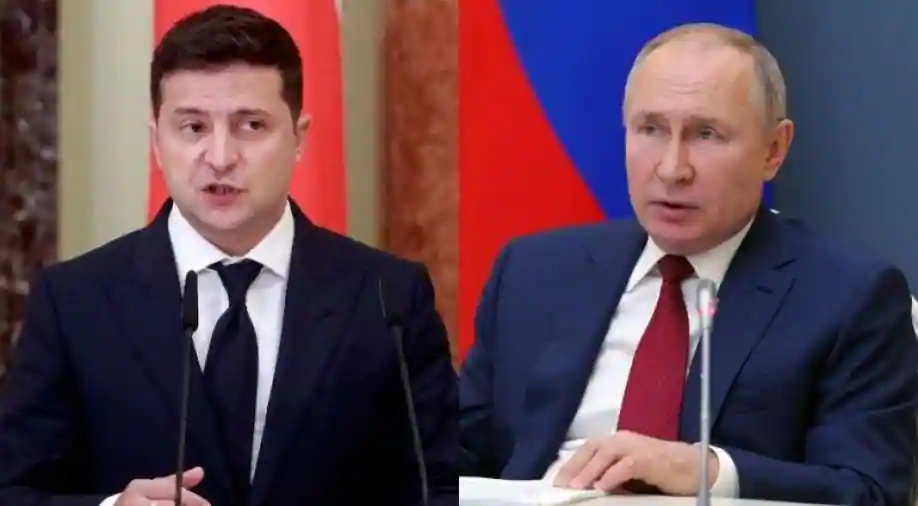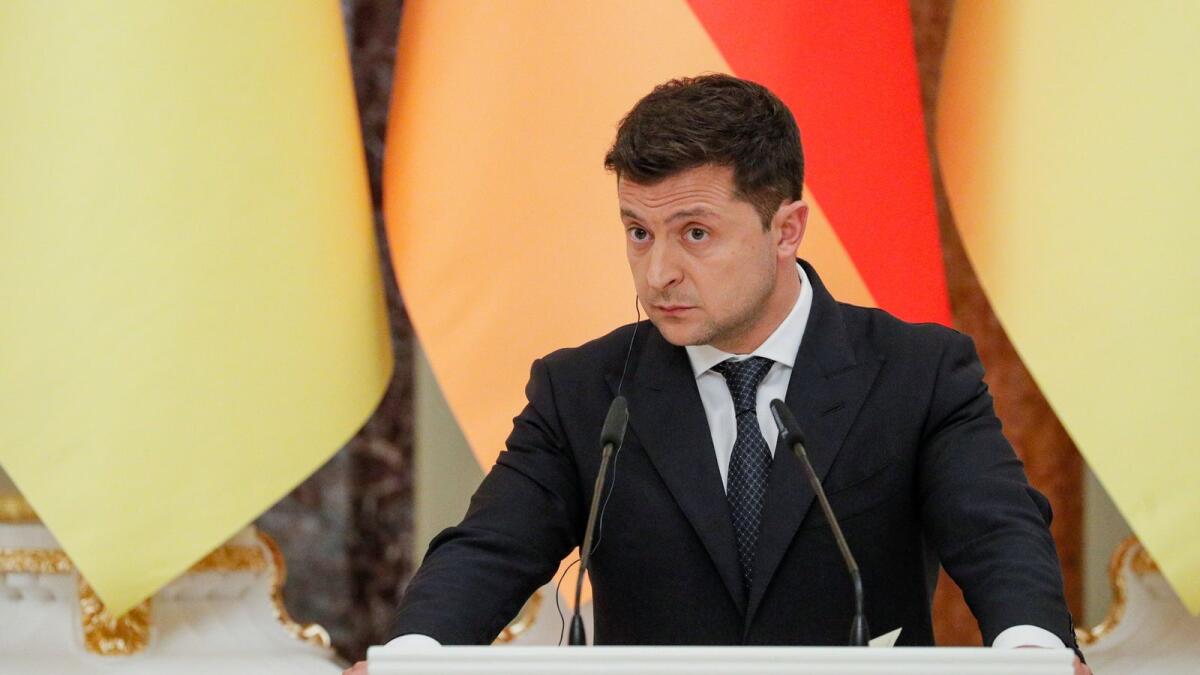Move comes after Ukrainian leader Zelensky initially rejected Belarus as meeting location and proposed Israel as a neutral broker, and as Putin orders nuclear forces on high alert
Ukraine on Sunday said it would hold talks with Russia at its Belarusian border after a phone call between President Volodymyr Zelensky and Belarusian leader Alexander Lukashenko.
“The politicians agreed that the Ukrainian delegation would meet the Russian one without preconditions at the Ukraine-Belarus border, near the Pripyat River,” Zelensky’s office said in a statement.
It did not list a specific location or time for the talks.
The announcement on Sunday came hours after Russia announced that its delegation had flown to Belarus to await talks. Ukrainian officials initially rejected the move, saying any talks should take place elsewhere than Belarus, where Russia has placed a large contingent of troops.
But Kyiv said Lukashenko assured Zelensky that “all planes, helicopters and missiles stationed on Belarus territory will remain on the ground during the travel, negotiations and return of the Ukrainian delegation.”
Ukraine’s foreign minister said Kyiv would not buckle at the talks with Russia over its invasion, accusing President Vladimir Putin of seeking to increase “pressure” by ordering his nuclear forces on high alert.
“We will not surrender, we will not capitulate, we will not give up a single inch of our territory,” Dmytro Kuleba said at a press conference broadcast online.
News of the meeting came shortly after Putin ordered Russian nuclear forces put on high alert in response to what he called “aggressive statements” by leading NATO powers.
Putin accused Western countries of taking “unfriendly” steps against his country.
The fourth day of fighting Sunday saw street battles break out in Ukraine’s second-largest city, Kharkiv, and Russian troops squeezing strategic ports in the country’s south, advances that appeared to mark a new phase of Russia’s invasion following a wave of attacks on airfields and fuel facilities elsewhere in the country.
The capital, Kyiv, was eerily quiet after huge explosions lit up the morning sky and authorities reported blasts at one of the airports. Only an occasional car appeared on a deserted main boulevard as a strict 39-hour curfew kept people off the streets. Terrified residents instead hunkered down in homes, underground garages and subway stations in anticipation of a full-scale Russian assault.
“The past night was tough – more shelling, more bombing of residential areas and civilian infrastructure,” Zelensky said. “There is not a single facility in the country that the occupiers wouldn’t consider as admissible targets.”
Ukraine has reported 198 civilian deaths, including three children, since the invasion began. The UN has put the civilian toll at 64.
READ ALSO: In response to Western threats, Russia puts nuclear forces on high alert
Zelensky initially rejected Belarus as a location for talks because it served as a staging ground for the invasion. He said Kyiv had proposed “Warsaw, Bratislava, Budapest, Istanbul, Baku” as options to Russia.
He had also apparently floated Israel as a mediator in a call with Prime Minister Naftali Bennett on Friday.
Bennett spoke with Putin on Sunday about the possibility of Israel brokering peace talks. He told the Russian leader Israel was ready to assist in any way possible in bringing the sides together, in light of its unique relationship with both countries, according to an Israeli official.
Putin told Bennett that he is ready to negotiate, according to the official.
However, the Kremlin said Putin had told Bennett that Russia had already sent a delegation to Gomel in southern Belarus to conduct peace talks with Ukrainian officials.
Israel has attempted to walk a tightrope between supporting Ukraine, where there are thousands of Israelis and tens of thousands of Jews, and maintaining ties with Russia, a major player in Syria to Israel’s north.














